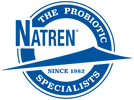Is it possible that probiotics can make a root canal more effective? It’s a question that is not fully answered yet, but some scientists have felt it was worth asking. A 2017 study published in the Journal of International Society of Preventive & Community Dentistry looked at this very scenario to see if using probiotic products containing the right mix of healthy bacteria might help improve or maybe even prevent the basic root canal.
What is a Root Canal?
A root canal is an endodontic procedure designed to repair and save a decaying tooth. The objective of most root canals is to remove the pulp, made up of nerves and blood vessels, from a tooth because it is infected. This type of infection can lead to complications that include a systemic blood infection by introducing bacteria into the blood stream. It also destroys the tooth itself by weakening the enamel and bone that stabilizes it.
Root canal therapy removes the infected material and cleans out the inside of the tooth, saving the enamel and bone. An access hole is drilled into the top of the tooth and the pulp and other debris removed. Once complete, the interior of the tooth is filled and the tooth is restored usually with a crown.
Probiotics in Endodontics
The focus of endodontic treatments, the study and treatment of dental pulp, is as much about prevention as it is oral care. Endodontic therapy works to prevent the loss of a natural tooth, the destruction of stabilizing the bone and the spread of infection.
Infection occurs when one strain of bacteria overwhelms an ecosystem. In the case of a dental abscess or infected tooth, bacteria overwhelm the pulp of the tooth. Probiotics are about creating balance in that ecosystem in order to keep invading bacteria in check. This is the theory behind a recent study used to evaluate the benefit of probiotics as an endodontic treatment.
In this study, researchers looked at two persistent pathogenic organisms often found in tooth infections: Enterococcus faecalis and Candida albicans. The authors selected probiotics containing competing beneficial bacteria, specifically Lactobacillus and Bifidobacterium, to see if they could keep the invading pathogens in check.
During the first stage of the study, they introduced the probiotics into agar cups containing the bacteria to see if there was an antibacterial effect. The second phase followed the same processes using biofilm instead of agar cups.
The results found that the probiotics acted against the E. faecalis in the agar cup and against both pathogens on the biofilm. It’s important to note that this process has not been tested on humans at this point, only in a lab environment. The lab tests suggest that the right probiotics may be beneficial in the treatment of endodontic infections, possibly as an alternative to or alongside a root canal.
Why not just use a method previously proven effective in the first place? In part, because root canal therapy doesn’t always work, according to these researchers and when it does fail, it can leave dangerous bacteria behind. This would indicate that probiotic treatments might work in conjunction to the root canal to increase the success rate of endodontic therapies.
The Benefits of Oral Probiotics
This isn’t the first time probiotics have been considered in the dental world. In 2008, two researchers published a study in the International Journal of Antimicrobial Agents suggesting that microorganisms used in probiotic products might help contain plaque generating bacteria. Plaque is a sticky substance produced by oral bacteria as they break down sugar.
Plaque buildup is at the core of periodontal disease because it contains microbes able to destroy tooth enamel and soft tissue. Introducing a small sample of good bacteria might reduce the influence of these plaque generating microbes, improving oral hygiene and reducing plaque-related damage.
There is also some evidence that some Lactobacillus species can help reduce episodes of gingivitis and even eliminate chronic halitosis, both precursors to periodontal disease. In one study, a group of patients suffering from moderate gingivitis was given Lactobacillus formulations each day. The colonization of the Lactobacillus proved effective to reduce their gingivitis.
Although there are more studies to do, it seems clear that probiotics may one day be used to create a more diverse oral microbiota improving dental hygiene, and saving teeth in the process.
The post Probiotic Bacteria are Being Studied for Root Canals appeared first on Natren Probiotics Blog.




0 comments